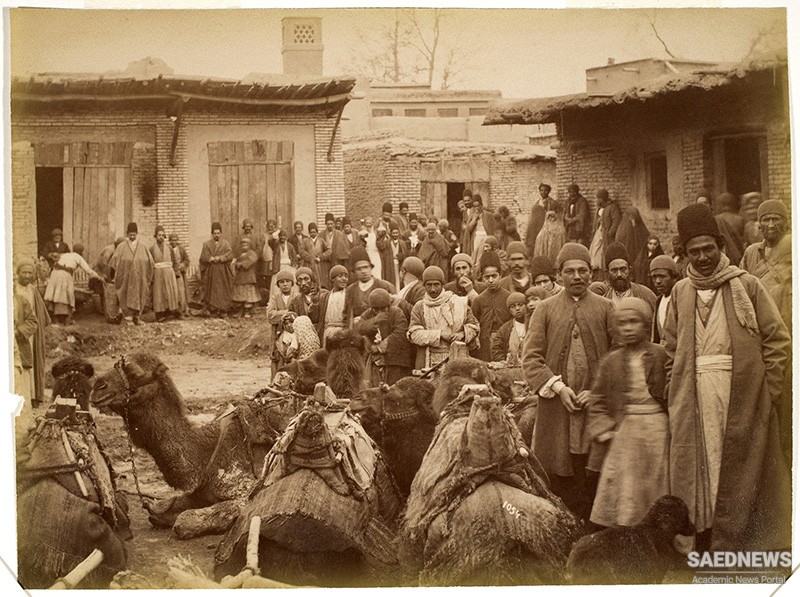The most progressive preachers, journalists, and activists shared their criticism of the conservative Qajar aristocracy and the high clergy, though seldom by name, favoring instead the pro-constitutional and the enlightened members of the state elite. Earlier critics like Malkom, Afghani, and Kermani, and the moderate Yusef Khan Mostashar al-Dowleh, considered such a course a tactical necessity. The latter was the author of the critical tract Yak Kalameh (A single word), among the earliest in this genre published in 1871. It advocated the constitution as the remedy to the country’s ailments. Aiming to reconcile the preamble to the French constitution with Islamic principles, Mostashar al-Dowleh offered a very liberal reading of Islamic theology and law in defense of the rule of law, human and civil rights, and limits on the state’s power. His comparative approach found little following at the time, but no doubt it later influenced the framers of the Iranian Constitution. Mostashar al-Dowleh’s facility pairing articles of the French constitution with Qur’anic verses and the Islamic hadith may not have always met the jurists’ seal of approval, but is was sufficient to later persuade the Iranian constitutionalists, many of them laymen, not to leave the task of interpreting shari‘a entirely to the jurists. By the time of the Constitutional Revolution a trend within the Iranian opposition indeed articulated an Islamic discourse similar to that of Mostashar al-Dowleh. Preachers and activists, some with a latent Babi-Azali affiliation, were ready to offer their support to moderate mojtaheds such as Sayyed Mohammad Tabataba’i (1842–1920) and Sayyed ‘Abdollah Behbahani (1840–1910) as a realistic way to rock the weakling Qajar state. The shift within the Babi-Azali camp, which had become radical since the 1880s after Yahya Sobh-e Azal endorsed call for an anti-Qajar revolt, allowed for the concealment of past Babi affinities—an act of “disguise” (taqiyyeh) in a moment of danger that is fully endorsed by the Shi‘i legal tradition and, by implication, by the Babi-Azalis. Fifty years of persecution at the hands of the ulama and the state convinced them that a dual challenge to the Qajar state and the Shi‘i establishment was untenable. They were, however, receptive to the notions of democracy, representation, and even republicanism, which they felt were in harmony with the essence of the Babi beliefs. And they were eager to share their invigorated political dissent with sympathetic Shia authorities. In contrast, the Baha’is, who accounted for the majority of those stigmatized under the general rubric of the Babi heresy, remained largely uninvolved and often resolved to disclose their religious identity, a conviction that resulted in tragic bouts of severe persecution. The sporadic mob brutalities committed against the Baha’is in the late nineteenth and early twentieth centuries were frequently provoked by ambitious mojtaheds and carried out by their followers. The growth of these anti-Baha’i campaigns may be attributed to the mojtaheds’ losing ground to more liberal voices outside and within the religious community. They viewed conversion to the new faith, an avenue to religious modernity for many laypeople and for members of the clerical class critical of the Shi‘i establishment, with great anxiety. The atrocities were often condoned by the Qajar government and its local agents, who were either helpless to stop them or perhaps more often saw a chance to enhance their public image as disseminators of heresy and as upholders of the true Islamic faith.


 Babism and Modernism: Growing Ideological Paradoxes and Formation of New Intellectual Alliances
Babism and Modernism: Growing Ideological Paradoxes and Formation of New Intellectual Alliances














































